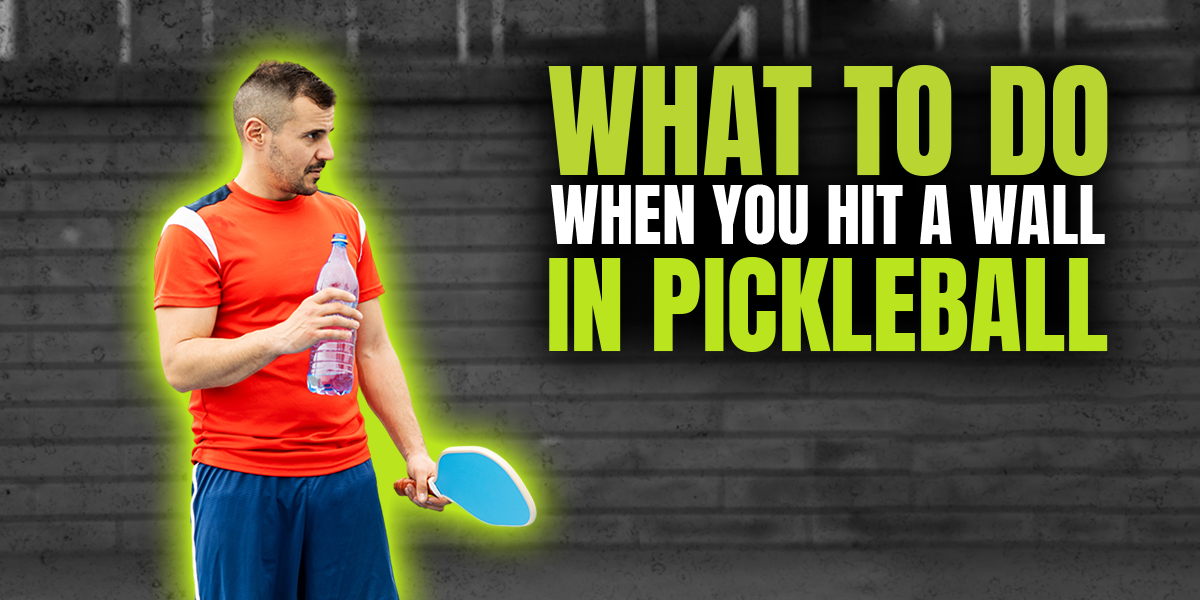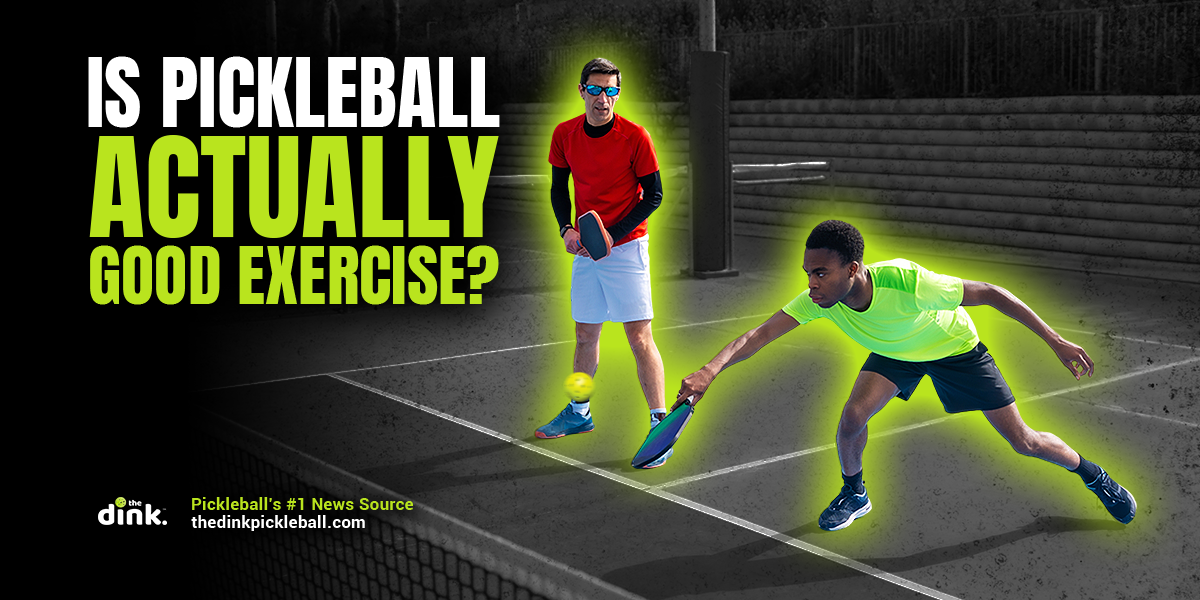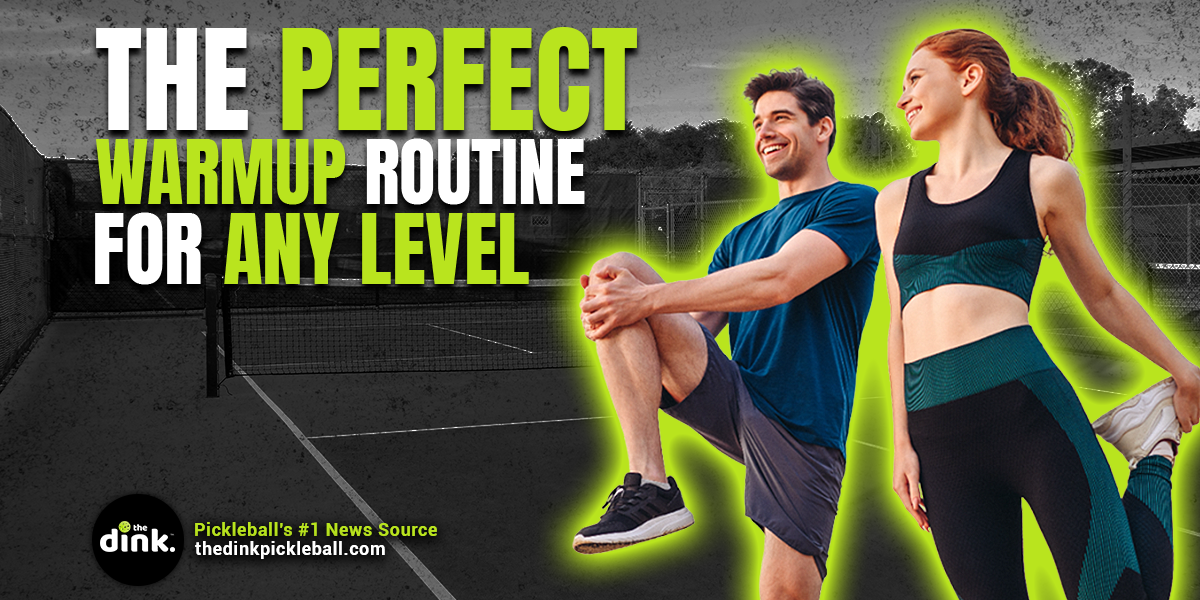
Crashing into a wall – whether physically or mentally – is rarely a good thing. Since a lot of pickleball is played indoors, we feel the need to clarify.
If you're currently lying on the ground, searching for help after putting your backside through some drywall at your local club, this isn't for you.
However, if there's ever been a time when you mentally checked out of a pickleball match only to find yourself losing the next six points due to stupid mistakes, then we're here to help you prevent that in the future.
How to know you've hit a wall
If you've ever been in a match and wondered, "Wait, how did they get so many points so fast?" there's a great chance you hit a wall and didn't know it.
Hitting a mental wall in pickleball can feel different to different people. For some, it might mean missing a series of serves and returns. For others, it could be forgetting to switch when you're stacking.
It's hard to describe exactly what hitting the metaphorical wall feels like. You kind of just know it when you feel it.
Unfortunately, hitting these walls often comes at a cost – mostly in the form of points for the other team – though it can also lead to injury.
Whatever the cost, it's no fun, and we need to learn to recognize these moments before they get out of hand.
What causes moments of mental lapse?
While hitting a wall usually means you're fatigued and should stop playing, other things can also cause these crashes.
You're dehydrated
Dehydration can wreak havoc on your body and mind. When we're playing, it's essential to drink plenty of fluids and replenish the important nutrients that are emptying out of our bodies through blood, sweat, and tears – okay, mostly sweat.
Always take water and/or electrolytes (you can find them in convenient to-go packs everywhere these days) with you to the court and drink between games.
You're hungry
Skipping a meal and letting your blood sugar drop is easy when you're in the heat of competition and playing pickleball for hours. Unfortunately, this can also cause strange happenings in our minds and bodies.
Brain fog being just one of them.

A light snack (like a banana or granola bar) can fuel us enough to make it through "one more game" without losing focus. Make it a habit to squirrel away some nuts or protein bars in your pickleball bag to prevent becoming hangry or making silly hungerstakes (mistakes you make when you're hungry).
You're thinking about other things
To play great pickleball, you must stay engaged in the moment. Thinking about other things – even something as simple as "Did I just say the wrong score" right before serving – can cause a lapse in concentration.
Of course, we're all human, and most of us have something more important than pickleball (gasp!) going on in our lives.
When possible, try not to let your mind wander too much while on the court. If you're having trouble focusing, it's best to step off and let someone else play for a while.
Get your mind right, then get back in the game.
Crash recovery methods
The best part of the list above is that they are each preventable with some preparation and refocusing. But what do you do when fatigue or your fitness level causes these crashes on the court?
Admit you've hit the wall
The first step to recovery is admitting you have a problem. Whenever you miss a serve or a return or have a mental lapse, ask yourself why.
Were you focused?
Was it just a fluke?
Or was it something that could cost you 3, 4, or 5 points in a row if you let it continue?
Whatever it was, accept that it happened, take a deep breath in and out, then move on.
Call a timeout
Once you know you've hit a wall or are in danger of hitting one during a tournament, call a timeout.
You can use those 60 seconds to hydrate, shake off the brain fog, or do whatever you need to refocus your mind on the match.
Yell at yourself in the bathroom if you have to.
Release some frustration
If you're in a rec game and not a tournament, calling a timeout will get you laughed off the court. Instead, find a different way to release your frustration.
It could be a manufactured yell, a heavy sigh or breath, or simply untying and retying your shoe.

For good measure, kick the ball onto the empty tennis court if you have to.
During this moment, think about what you want to happen next.
This will help you re-engage in the moment and, hopefully, get you back in the match before it's too late to save.
Build a routine
Do you notice how baseball players have a routine before they set the bat on their shoulders, or golfers go through the same motions right before they putt?
These are built in routines they use to help themselves focus on the task.
Yes, they are physical, but that physicality triggers their mental and emotional state. They send a signal to their brain that it's time to get serious about what's about to go down.
Whether you're getting ready to serve or taking your spot before the next point, you should have set routines that you do every time.
It might seem silly – after all, we're just playing a plastic ball game – but if you're the type of person that needs to feel good about what they do on the court, then find routines that you can use for the rest of your playing career.
One example of a simple, repeatable routine is to bounce the ball twice and take a deep breath before serving. Another might be to twirl your paddle in your hand as you set your feet before a return.
Whatever it is, make it yours.
Improve your fitness level
You can play pickleball for the rest of your life if you stay fit.
Find ways to get exercise outside of open play. It might be as simple as taking an extra walk each day or something more strenuous like lifting weights on non-pickleball days.
What you decide to do should depend on your current fitness level and what you're trying to accomplish.
Being more physically fit not only helps you play better on the court, but will also pay dividends off the court.
If you only play pickleball for two hours a session a couple of times a week, it's not really fair for you to expect to last an entire five hour session without hitting a wall at some point.
If you learn to prepare for it correctly, the next time that wall comes your way, you'll be able to blast right through it.


Love Pickleball? Join 100k+ readers for free weekly tips, news & gear deals.
Subscribe to The DinkGet 15% off pickleball gear at Midwest Raquet Sports











